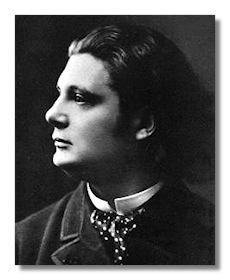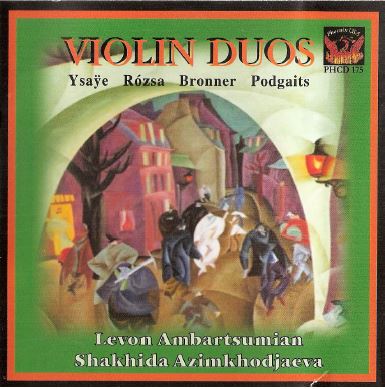
Ysaye, Eugene
Eugene Ysaye
The Belgian violinist Eugene-Auguste Ysaÿe was among the leading virtuosi of his day, inspiring admiration rather than jealous rivalry from other great contemporary performers. Born in Lige in 1858, he was taught by his father, Nicolas-Joseph Isaye, a violinist and opera conductor, and entered the Lige Conservatoire in 1865, studying there with D. Heynberg. At the death of his mother in 1868 and after disagreement with his teacher, he left, accompanying his father on concert tours and playing in the orchestras the latter conducted. In 1872 he returned to Lige to study with Rodolphe and Lon Massart, completing his training there with distinction in 1874. He continued his studies with Wienawski in Brussels and later, from 1876 to 1879, with Vieuxtemps in Paris.
After leaving Paris, Ysaÿe took a position as leader of the Bilse orchestra in Berlin, where he continued until 1882. The period brought concert tours through Scandinavia and Russia with Anton Rubinstein, a collaboration that he found helped his own musical development. In 1883 he returned to Paris, associating there with leading composers, including Csar Franck and Camille Saint-Sans, and, from the younger generation, Ernest Chausson, Gabriel Faur, Vincent dIndy and Claude Debussy, exercising an important influence on French violin music of the time. Francks Violin Sonata was dedicated to him as a wedding present, and Ysaÿe gave the first performances in Brussels in 1886, and then in Paris. Other dedications included Chaussons Pome and Violin Concerto and Debussys String Quartet. Pire li houeu (Peter the Miner) was staged in Lige and then in Brussels. His health allowed him to attend the second of these, three weeks before his death on 12th May 1931.
